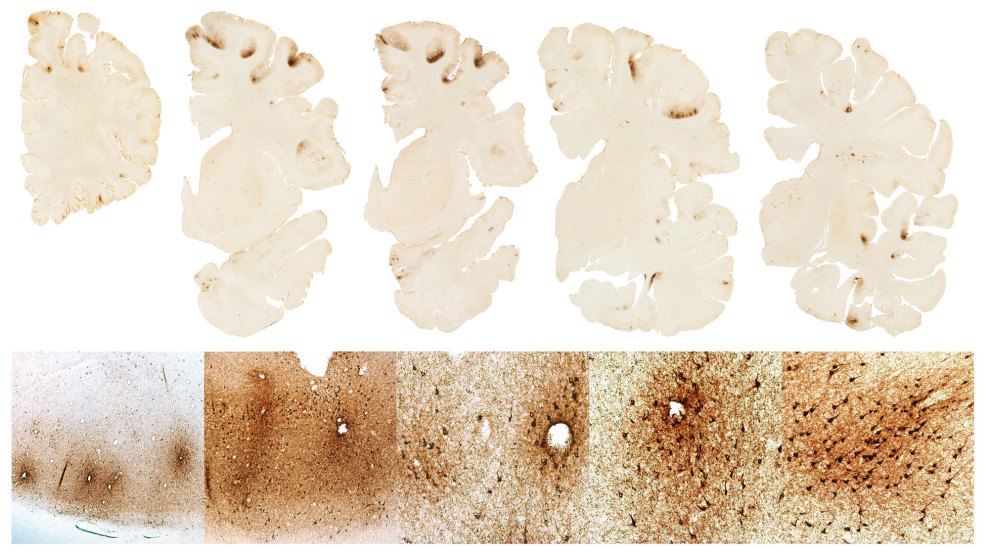
Scans of Aaron Hernandez's brainBoston University CTE Center
Former NFL star Aaron Hernandez, who committed suicide in prison this spring while serving a life sentence for a 2013 murder, suffered from severe chronic traumatic encephalopathy (CTE), his attorneys revealed Thursday. Hernandez’s family, who donated the brain to Boston University to be tested for CTE—a form of brain damage that is linked to concussions and even subconcussive hits—announced shortly thereafter that they would be suing the NFL.
Per the Associated Press:
CTE can be caused by repeated head trauma and leads to symptoms like violent mood swings, depression and other cognitive difficulties. Hernandez killed himself in April in the jail cell where he was serving a life-without-parole sentence for a 2013 murder. His death came just hours before the Patriots visited the White House to celebrate their latest Super Bowl victory.
CTE can only be diagnosed in an autopsy. A recent study found evidence of the disease in 110 of 111 former NFL players whose brains were examined.
CTE has been linked with repeated concussions and involves brain damage particularly in the frontal region that controls many functions including judgment, emotion, impulse control, social behavior and memory.
The Hernandez findings are notable because of how young he was—he was released from the New England Patriots in 2013 at the age of 24. For years the NFL denied that the sport contributed in any meaningful way to brain damage in its players. As recently as September 2013, when the NFL agreed to settle a lawsuit brought by 4,500 ex-players claiming damages from concussions, commissioner Roger Goodell told CBS that “there was no recognition that anything was caused by football.”
But a series of bombshell studies and investigative reports over the last decade uncovered that the league was not only aware of the possible consequences of concussions, but had even shelled out millions in disability benefits to some players found to have suffered brain damage. In one 2016 story, the New York Times compared the NFL’s handling of its health crisis to the tobacco industry’s coverup of the consequences of smoking.












